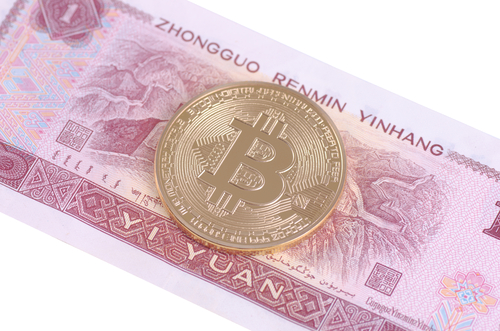Bitcoin Exchange Regulations in China: Growing Pains?
In recent weeks, Chinese regulators have taken a stronger interest in bitcoin, the cryptocurrency that was the first major application of blockchain technology and that we have recently highlighted in this blog. As a result, there have been significant restrictions on the flow of bitcoins in China, which had previously dominated the volume of bitcoin exchange. In late January, the Wall Street Journal reported that the three largest bitcoin exchanges in China each instituted a 0.2 percent transaction fee. The article cites statements on each exchange’s website indicating the change was “to further curb market manipulation and extreme volatility,” and it further notes that the People’s Bank of China (PBoC), the Chinese central bank, had begun investigating the exchanges earlier in January.
In early February, it became clear that regulators were not satisfied. According to multiple reports, Chinese regulators met with the major bitcoin exchanges on Wed., Feb. 8, and warned them not to violate regulations related to issues such as money laundering and foreign exchanges. The next day, two of the three largest exchanges announced a one-month freeze on withdrawal of bitcoins, with the third announcing that withdrawals would be permitted but would require 72 hours to process. All three cited concerns about illegal transactions. The market responded swiftly, and the ban was quickly followed by a 10 percent decline in bitcoin prices, from about $1060 to $960. As of this writing, prices have recovered most of the dip since last week and are trading at $1034.
Many traders in China are worried about price risk due to further potential regulations. However, some in the bitcoin community see regulation of these exchanges as the lesser evil, which may be reflected in the price recovery. A CNBC article quotes the CEO of a bitcoin research company saying, “These marketplace changes will inevitably slow nefarious activity and open channels to more and more institutional investors. In my opinion the ‘PBoC cleanup’ is the best thing that could have happened to bitcoin this year.”
For bitcoins to be widely accepted as money, the cryptocurrency has to be trusted by a wide user base. It is possible that regulation could cause it to be seen as more legitimate by average consumers and increase circulation and the value of bitcoins as a medium of exchange. As a practical matter, it is unclear whether the friction introduced by regulations will prove to be more important than the trust engendered with an imperfectly educated public. What is clear is that these new regulations are likely to stick around and provide us a chance to find out.










